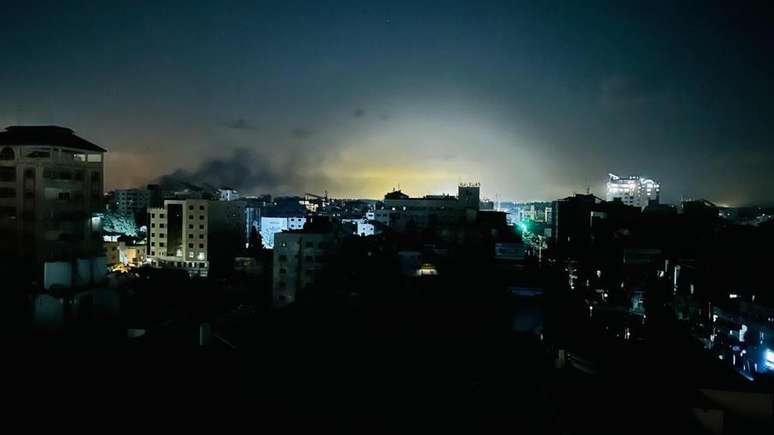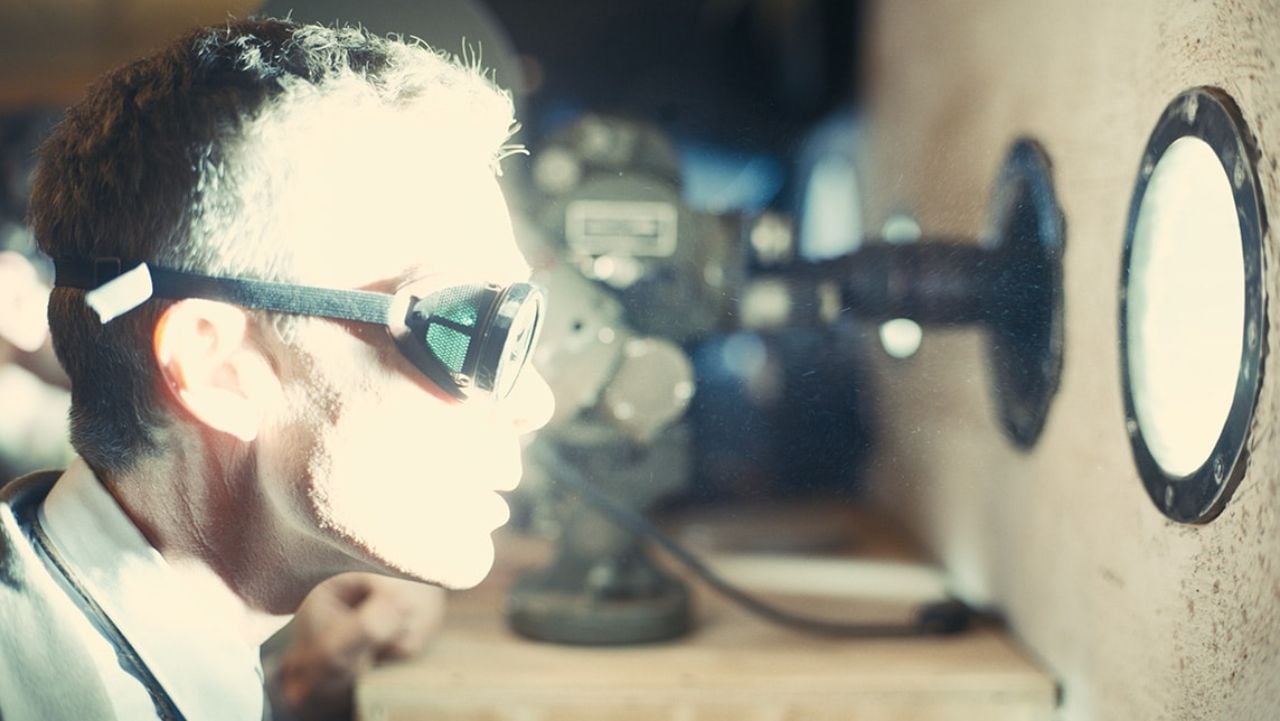“I lost my entire family. When I went to the cemetery to bury my children, I returned and found my house completely destroyed. I don’t know where to go,” says Abu Saqr Abu Rokba, a seventy-year-old Palestinian.
Fatma Aly, a 36-year-old Palestinian who lives with her family in northern Jabalia, said that when electricity was cut in the Gaza Strip, her first night without electricity was unbearable.
“Gaza is in complete darkness right now,” he says. He trembles with fear and the loud noise of Israeli bombs hitting the buildings almost drowns out his voice.
“We don’t even have candles to light. The shops are closed and the only thing we have is a small torch,” Fatma says with a trembling voice.
The lack of electricity is “inhumane”, he says, as it affects the supply of drinking and bathing water, while pumping depends on electricity.
Electricity was cut across the Gaza Strip at around 2pm (local time), two days after Israel ordered a full siege of the territory on 9 October.
Fatma and her two elderly parents have only two small barrels of water that they had stored before the Israeli attack.
“Without electricity there isn’t even refrigeration, so the food supply is also limited,” he says.
“The food in the fridge got spoiled and we had to throw it in the trash,” he says.
The family also cannot wash for prayer five times a day, a mandatory Islamic ritual.
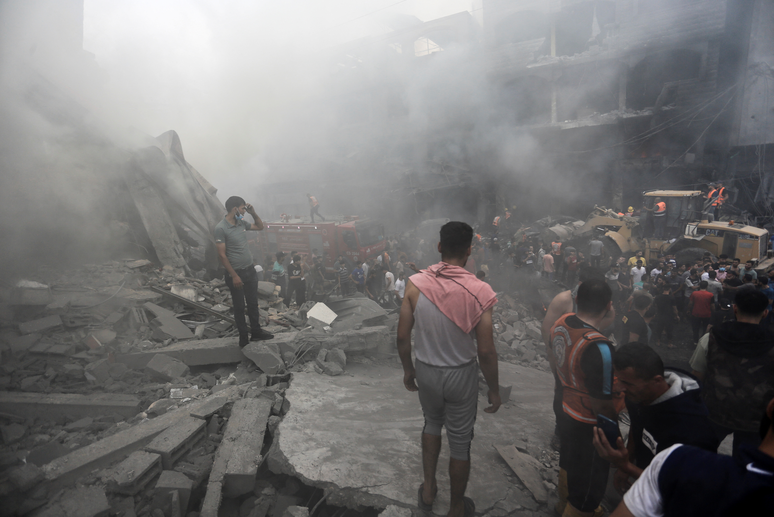
Without food
Fatma and nearly all of her building’s neighbors are rationing their meager supplies of food and water.
“We have no food except what was left before the war started. We only have Za’tar (an Arab spice) and some olives,” he says.
Children are the most affected.
“My nephews who live with my brothers on other floors of the same building are the ones who pay the most,” he says.
Fatma cries as she describes how there is no safe place for them.
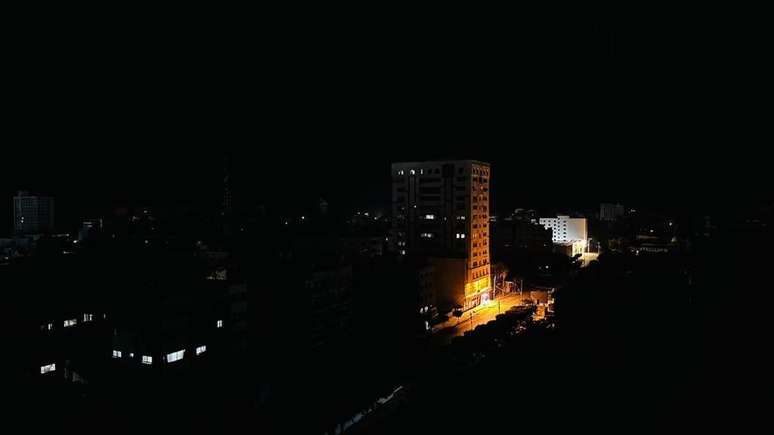
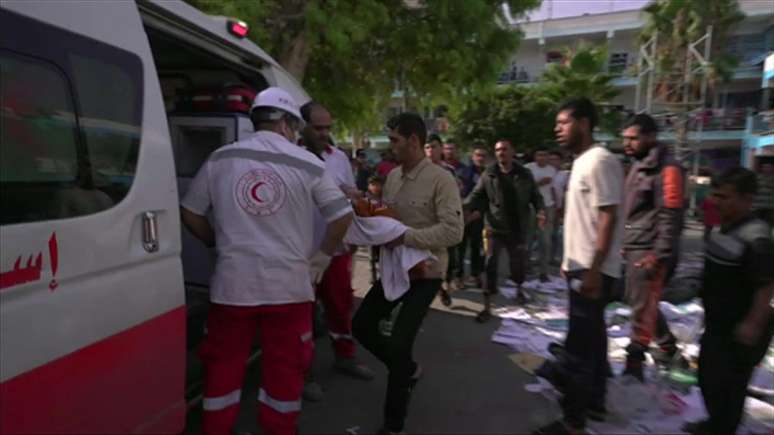
“Children Choking”
Inside what was once a United Nations secondary school in the camp, hundreds of people are crammed into small classrooms.
The school now serves as a shelter for those who have no homes and is already overcrowded.
A man in his 30s has just finished work on a makeshift tent to house his family.
“I collected nylon, plastic and wood to build a tent next to the school. There is no place for people to go anymore,” he says.
Right in front of the school I see a man hastily carrying a small child into an ambulance, where he is greeted by a paramedic.
He tells me that the emergency services responded to many cases of children and women suffering from suffocation due to the smoke and dust caused by the bombing.
Gaza’s Health Ministry says power outages are devastating for hospitals and patients.
The ministry says the lives of 1,100 kidney dialysis patients – including 38 children – are at risk now that the electricity supply has been cut.
The ministry also says the lack of electricity threatens 100 children who were in incubators, which are now without electricity to operate.
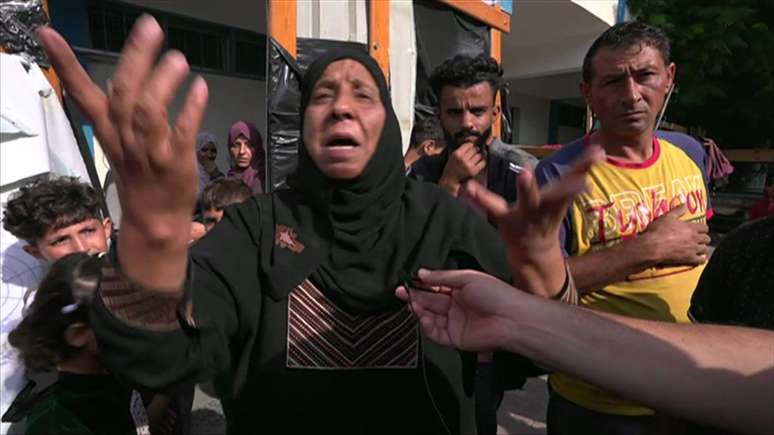
“This is a war of extermination”
When I arrived at the densely populated Jabalia refugee camp in northeast Gaza, people were fleeing their destroyed homes. Those who are luckier can get blankets or clothes to take with them.
For me, life seems almost impossible in the refugee camp, hit by numerous Israeli bombings.
“We have no water, no food, not even air,” says a man sobbing in the middle of the camp, “what kind of life is this?”
“This is not a normal war, it is a war of extermination,” shouts another man next to him.
Dozens of Palestinians in the camp agree that the situation is dire.
Abu Saqr Abu Rokba, a seventy-year-old Palestinian, lost his three children.
He cries as he describes his situation to me. “I lost my entire family. When I went to the cemetery to bury my children, I came back to find my house completely destroyed. I don’t know where to go.”
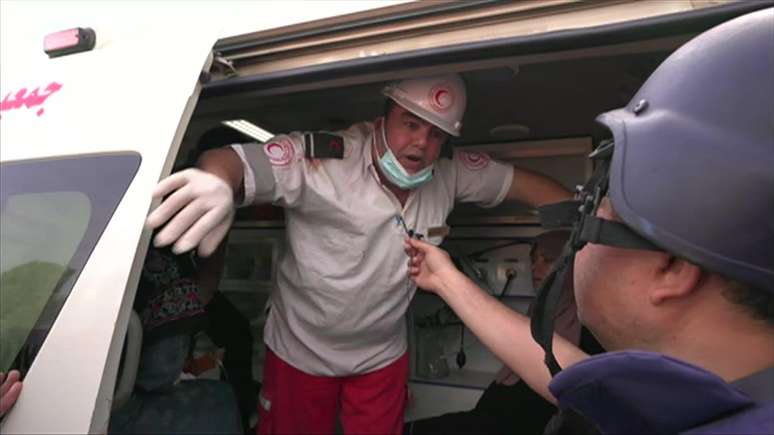
Some of the refugees in the camp are newly arrived, having fled bombings in other areas.
A woman who asked that her name not be used says she is from Beit Hanoun, located in the far northeast of the Gaza Strip, and found a worse situation in Jabalia.
“I lost my husband and my son. My other children are seriously injured. Every day we face shelling. Every day,” she adds, unable to hold back her tears.
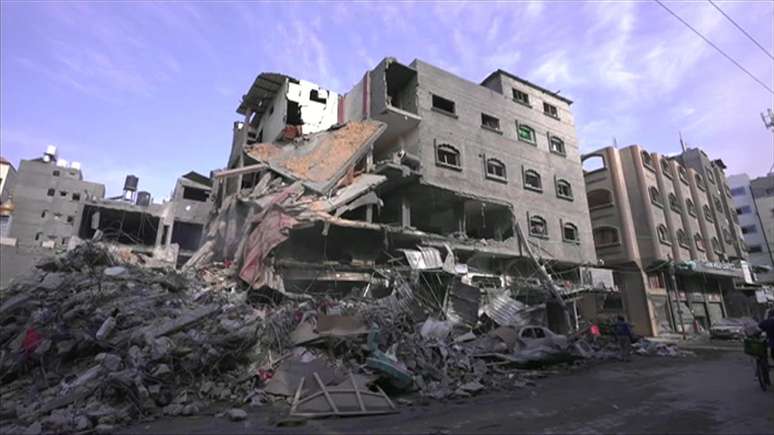
Food and fuel supplies are running low
It is increasingly difficult to find fuel for power generators.
Waste treatment plants cannot function without electricity. As I walk through the squalid and overcrowded camp, piles of rubbish have already begun to accumulate and take over large areas.
They are attracting pests, sparking thoughts of possible epidemics in my mind.
Clouds of black smoke can be seen rising towards the sky. The morning begins with the acrid smell of gunpowder that blocks the nose and causes coughing.
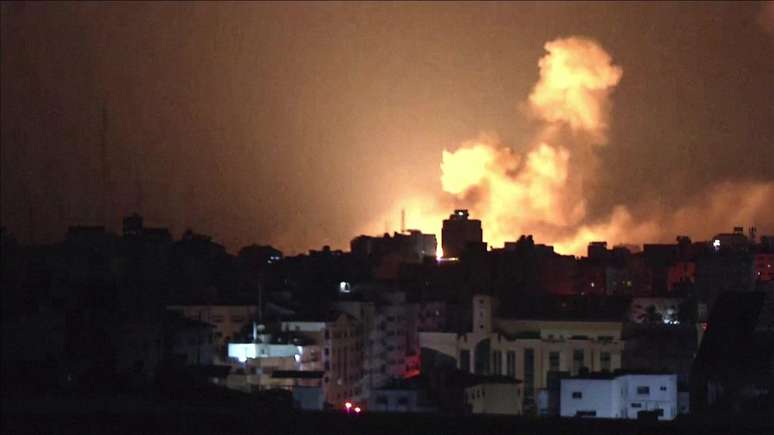
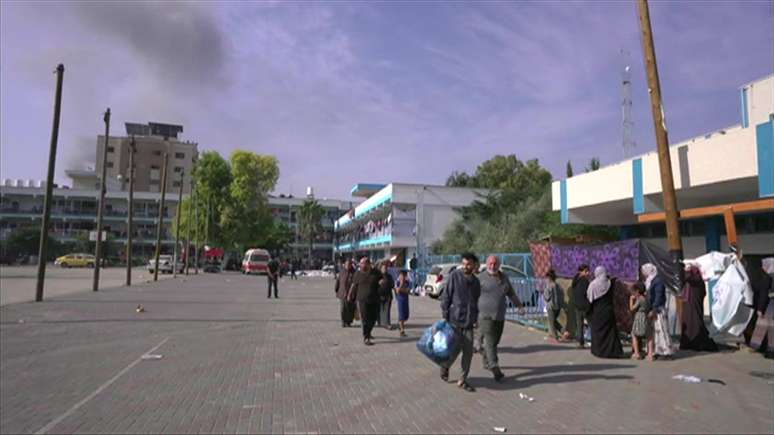
Source: Terra
Rose James is a Gossipify movie and series reviewer known for her in-depth analysis and unique perspective on the latest releases. With a background in film studies, she provides engaging and informative reviews, and keeps readers up to date with industry trends and emerging talents.

